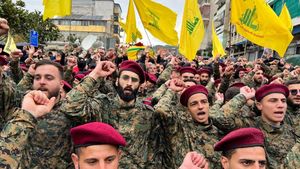Karol Nawrocki, the former director of the Museum of the Second World War and the current president of the Institute of National Remembrance (IPN), has come under scrutiny due to his international trips, which have cost Polish taxpayers nearly 800,000 PLN. This substantial amount has sparked debates over the necessity and justification of these travels, particularly at a time when many citizens are questioning the spending of public funds.
The detailed findings reported by Gazeta Wyborcza revealed a pattern of Nawrocki's extensive travels across the globe, including countries such as Zimbabwe, Mexico, and multiple destinations within the United States. These trips, which occurred both during his tenure at the Museum and currently as the head of IPN, were ostensibly tied to the institute's mission of promoting Polish history and countering misinformation about the country's past.
According to the breakdown, Nawrocki spent approximately 463,000 PLN when he was the director of the Museum and over 326,000 PLN during his presidency at the IPN, which continues to raise alarms about fiscal responsibility. Critics argue these expenses reflect extravagance rather than the meaningful engagement with international partners or historical representation.
Responding to the backlash, the IPN issued statements emphasizing the necessity of Nawrocki's presence at various international engagements, asserting, "Many tasks related to the institute's mission cannot be performed remotely and require the presence of the IPN representative; why shouldn’t it be the president?" This defense seemingly seeks to frame the expenditures as legitimate and aligned with state duties.
Experts, including Professor Antoni Dudek, have weighed in on the matter, stating, "I think there will be more information on this subject. It seems evident they are seeking ways to justify extensive travels under the guise of historical policy, to simply enjoy themselves." This perspective highlights concerns among historians and the public about the true intentions behind these trips, questioning whether they serve the public interest.
Supporters of Nawrocki, on the other hand, point to the importance of establishing connections and showcasing Poland’s historical narrative on the world stage. They argue the IPN’s presence at these international forums is pivotal to countering negative stereotypes and fostering bilateral relationships.
The public uproar surrounding Nawrocki's travels poses significant risks for the IPN’s reputation, leading many to reassess its role and effectiveness. Citizens are increasingly holding public institutions accountable for expenditures, especially ones they have difficulty seeing the merits of.
Future investigations or administrative reviews could emerge from this scrutiny, possibly influencing Nawrocki’s continuing leadership role at the IPN, as well as broader policymaking surrounding public sector travel and expenses. Such discussions are likely to continue as the impacts of his travels on Polish diplomacy and historical representation are weighed against the backdrop of economic prudence and accountability.
These events highlight not only the challenges faced by institutions like the IPN but also the expectations from the public for transparency and responsible governance. Whether this will lead to reform or merely anecdotal changes remains to be seen as Poland navigates its historical narrative on the international front.



